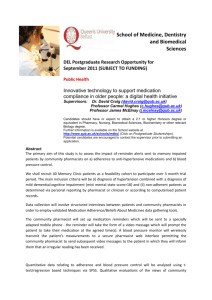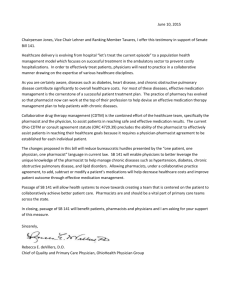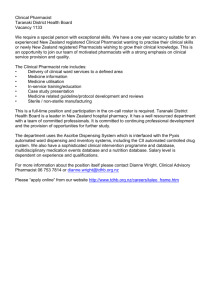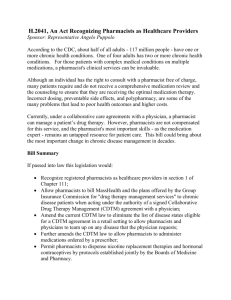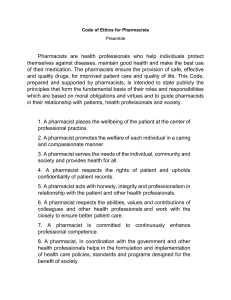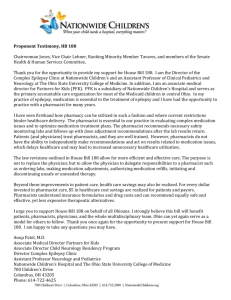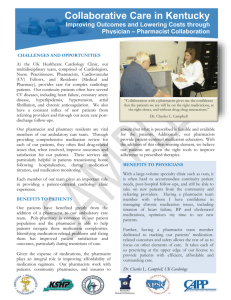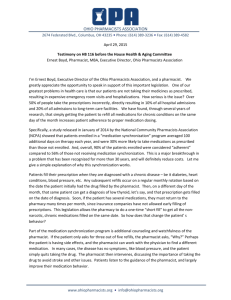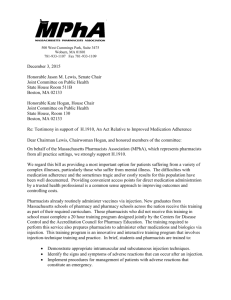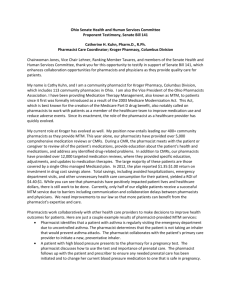500 West Cummings Park, Suite 3475 Woburn, MA 01801 781
advertisement
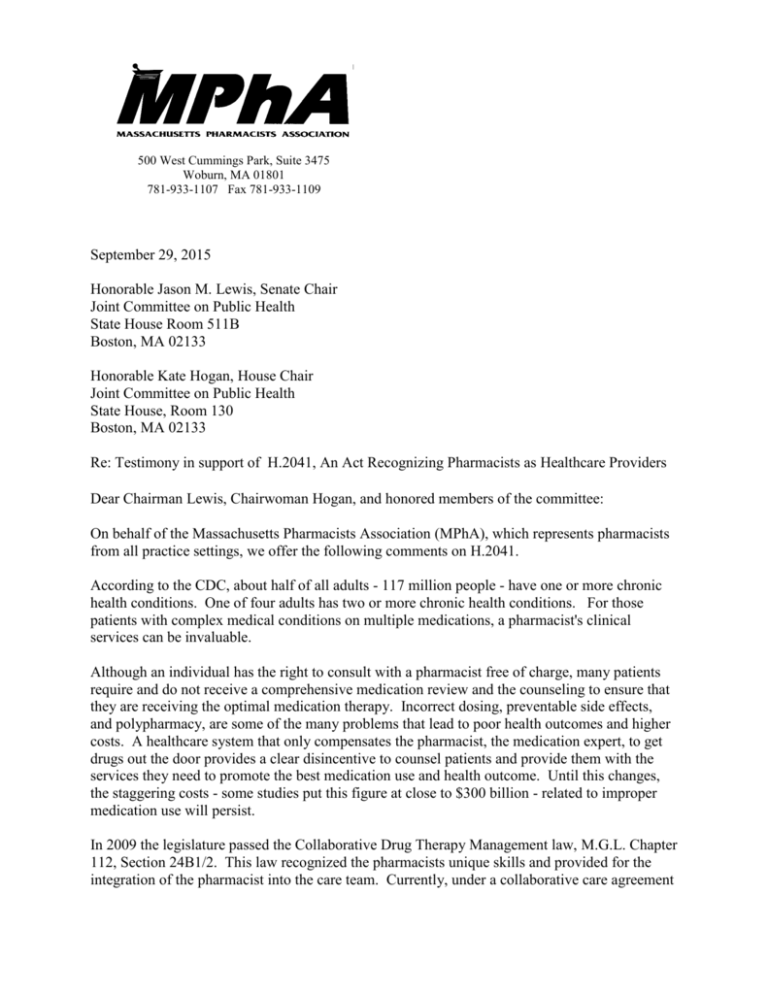
500 West Cummings Park, Suite 3475 Woburn, MA 01801 781-933-1107 Fax 781-933-1109 September 29, 2015 Honorable Jason M. Lewis, Senate Chair Joint Committee on Public Health State House Room 511B Boston, MA 02133 Honorable Kate Hogan, House Chair Joint Committee on Public Health State House, Room 130 Boston, MA 02133 Re: Testimony in support of H.2041, An Act Recognizing Pharmacists as Healthcare Providers Dear Chairman Lewis, Chairwoman Hogan, and honored members of the committee: On behalf of the Massachusetts Pharmacists Association (MPhA), which represents pharmacists from all practice settings, we offer the following comments on H.2041. According to the CDC, about half of all adults - 117 million people - have one or more chronic health conditions. One of four adults has two or more chronic health conditions. For those patients with complex medical conditions on multiple medications, a pharmacist's clinical services can be invaluable. Although an individual has the right to consult with a pharmacist free of charge, many patients require and do not receive a comprehensive medication review and the counseling to ensure that they are receiving the optimal medication therapy. Incorrect dosing, preventable side effects, and polypharmacy, are some of the many problems that lead to poor health outcomes and higher costs. A healthcare system that only compensates the pharmacist, the medication expert, to get drugs out the door provides a clear disincentive to counsel patients and provide them with the services they need to promote the best medication use and health outcome. Until this changes, the staggering costs - some studies put this figure at close to $300 billion - related to improper medication use will persist. In 2009 the legislature passed the Collaborative Drug Therapy Management law, M.G.L. Chapter 112, Section 24B1/2. This law recognized the pharmacists unique skills and provided for the integration of the pharmacist into the care team. Currently, under a collaborative care agreement with a physician, a pharmacist can manage a patient’s drug therapy, including initiating, altering and terminating medications to provide the best outcome. However, pharmacists are not compensated for this service, and the pharmacist's most important skills - as the medication expert - remains an untapped resource for patient care. Attached are two studies that are among many that demonstrate the cost effective care that can be provided when the pharmacist is integrated into the patient's care team. This bill could bring about the most important change in chronic disease management in decades. In addition, this bill enlists the pharmacist into two important public health campaigns, smoking cessation and unwanted pregnancies. Mirroring current practices in California, the bill permits pharmacists to dispense nicotine replacement therapies and hormonal contraceptives by protocols established jointly by the Boards of Medicine and Pharmacy. The accessibility of the pharmacist, particularly in low income communities, could have important benefits to these residents of the Commonwealth. Please do not hesitate to contact me if you have any questions or concerns. Sincerely, David E. Johnson Executive Vice President
